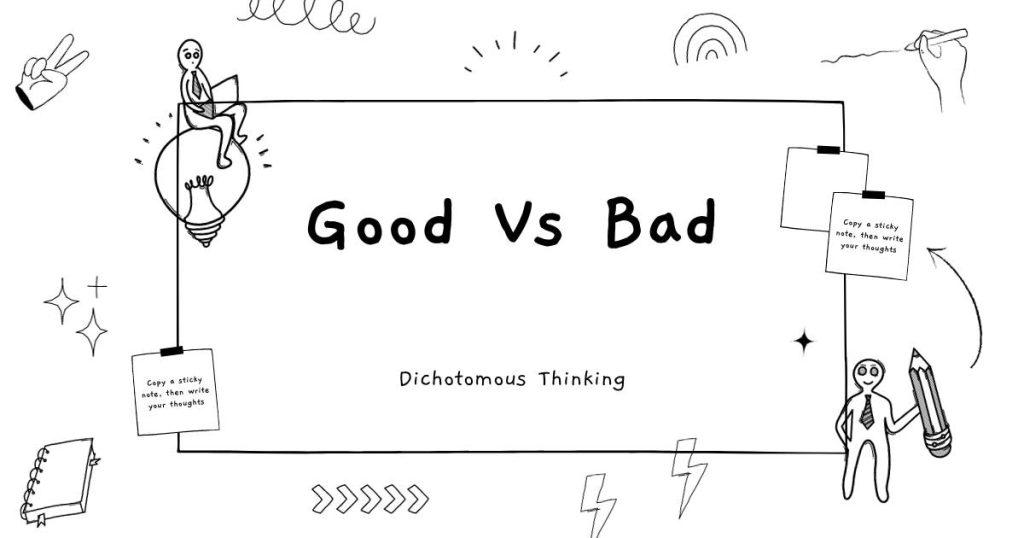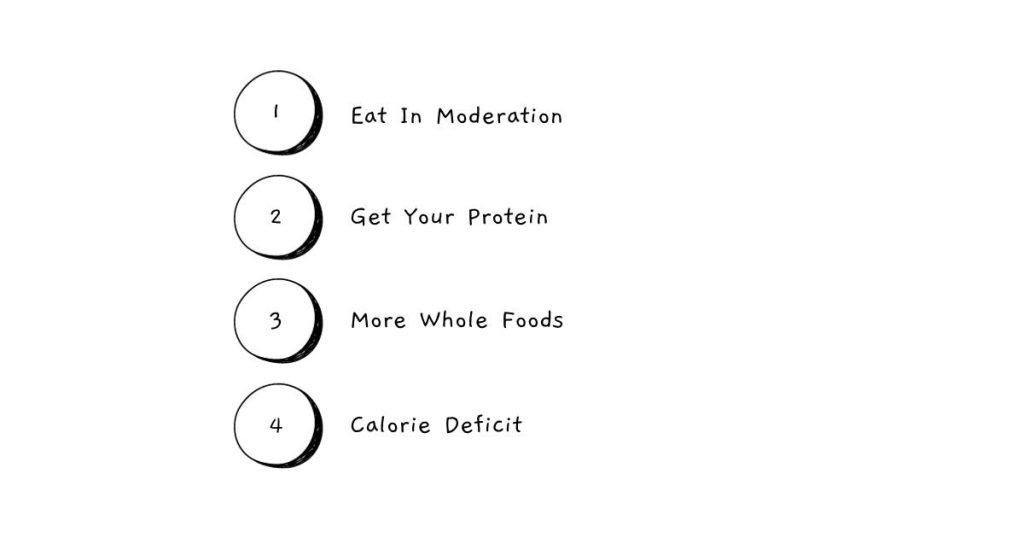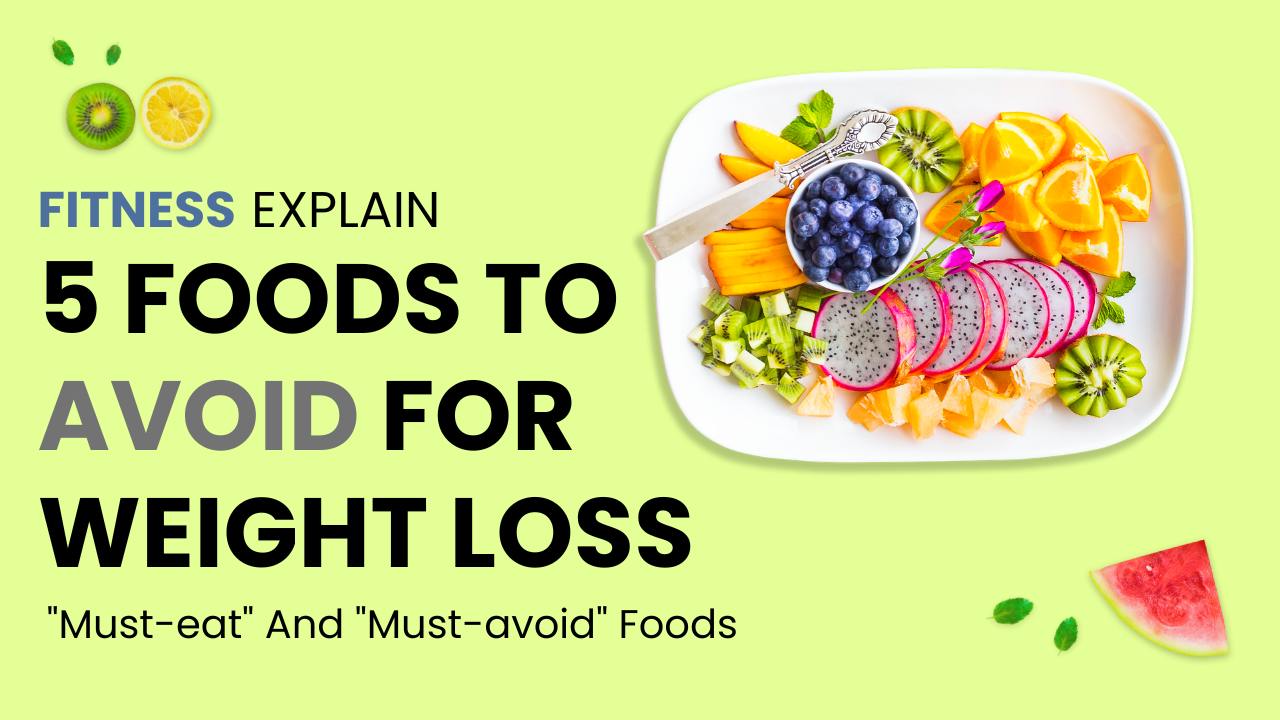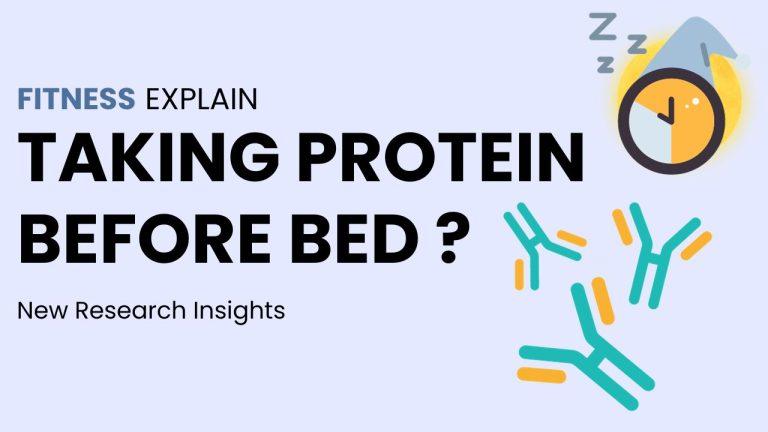In a world saturated with information on what to eat and what to avoid for shedding those extra pounds, the quest for effective weight loss strategies can be overwhelming. The media bombards us with endless lists of “must-eat” and “must-avoid” foods, leaving many of us confused about the best path to a healthier, slimmer self.
Amidst the chaos of dietary advice, one phrase stands out: “Weight Loss Foods.” This article aims to sift through the noise, providing you with a clear understanding of foods that might hinder rather than help your weight loss journey. Let’s navigate through the nutritional information to discover the truth behind the hype.
Stay tuned with us as we unravel the myths and realities surrounding foods touted for weight loss. From the common misconceptions to surprising revelations, this exploration will empower you to make informed choices on your path to a healthier lifestyle. So, fasten your seatbelts as we embark on a journey to separate fact from fiction and uncover the real story behind “Weight Loss Foods.”
Here's what we'll be covering in this article
Weight Loss Myth of “Nothing”: Why Extreme Restrictions Won’t Cut It
In the act of weight loss advice, one peculiar notion often surfaces – the idea that consuming “nothing” or imposing extreme dietary restrictions is the key to shedding unwanted pounds. Let’s dissect this myth and understand why this approach not only falls short but can also be detrimental to your overall well-being.
Essential Nutrients and Moderation:

Contrary to the notion that consuming “nothing” is a viable strategy, the reality is that our bodies require essential nutrients for optimal health and fitness. While taste preferences may vary, it’s universally acknowledged that there’s no food so repulsive that it should be entirely eliminated. Even consuming “nothing” in moderation can disrupt your chances of successful weight loss.
The Pitfalls of Black-and-White Thinking:
Scientific literature suggests that rigidly labeling foods as either “good” or “bad” can lead to challenges in maintaining weight loss. Extreme beliefs often result in unsustainable restrictions, causing stress and frustration that may lead to disinhibited eating – a state of eating with little to no restraint. If there’s any truth to this, how can we explain the existence of “nothing” in this dichotomy?
Flexibility vs. Extreme Restraints:
Studies indicate that the choice of diet has minimal impact on long-term weight loss compared to factors like maintaining a calorie deficit and adopting moderation in eating. The key lies in choosing a diet that aligns with long-term sustainability, steering clear of short-term, drastic attempts for quick results. Yet, the concept of “nothing” persists, seemingly defying the principles of a flexible mindset.
In our exploration of the myth of “nothing,” we’ll uncover why extreme restrictions aren’t the answer to your weight loss goals. Stay with us as we challenge conventional beliefs and seek a more balanced and effective approach to achieving a healthier you.
Breaking Down Beliefs: Good vs. Bad Foods
In the journey towards weight loss, a pervasive narrative often emerges— the classification of foods into the binary categories of “good” and “bad.” However, delving deeper into this belief system reveals a psychological complexity that can significantly impact your weight loss efforts.
Psychological Impact of Labels:
The act of labeling foods as either “good” or “bad” creates a dichotomy that influences our relationship with what we eat. This black-and-white thinking can lead to guilt and shame associated with consuming “bad” foods, potentially triggering unhealthy eating patterns.
Disinhibited Eating and Extreme Beliefs:
Research suggests a correlation between rigid beliefs about food and disinhibited eating. The stress and frustration induced by extreme dietary restrictions can, paradoxically, result in periods of uncontrolled and unrestricted eating. Breaking free from the “good vs. bad” mindset is crucial for a sustainable approach to weight loss.
Moderation and Flexibility:
Instead of adhering to extreme beliefs, a more effective strategy involves embracing moderation and flexibility in dietary choices. Understanding that occasional indulgence doesn’t derail progress fosters a healthier relationship with food, making long-term weight management more achievable.
By unraveling the beliefs surrounding “good” and “bad” foods, we aim to empower you with the knowledge needed to navigate a balanced and sustainable approach to weight loss. Join us as we challenge the conventional narrative and explore the importance of a nuanced perspective on the foods you choose to include in your journey towards a healthier lifestyle.
The Role of Diets: Do They Really Matter?
Amidst the myriad of diet trends promising rapid weight loss, a critical question arises – do the specific diets we choose truly make a significant impact on our journey to shed excess weight? This section explores the scientific landscape to uncover the realities behind various diets and their role in achieving sustainable weight loss.
Beyond Diet Labels:
Scientific studies reveal an intriguing truth — the labels of diets, whether low-carb, low-fat, or anything in between, have less impact on long-term weight loss than commonly assumed. Instead, other factors take precedence in determining success on your weight loss journey.
Focus on Caloric Deficit and Moderation:
What emerges as crucial in numerous studies is the concept of maintaining a calorie deficit, which involves burning more calories than you consume. Additionally, embracing moderation in eating habits proves to be more influential in achieving and sustaining weight loss than strictly adhering to a specific diet label.
Long-term Sustainability Matters:
The choice of diet matters less than its sustainability. Opting for a dietary plan that aligns with your lifestyle, preferences, and long-term goals is key. Short-term, drastic attempts to achieve a particular physique often lead to temporary success, followed by relapse.
As we navigate the intricacies of dieting and its impact on weight loss, it becomes evident that the emphasis should shift from rigid adherence to a specific diet label to a more holistic approach. Join us as we unravel the science behind diets and discover why factors like maintaining a calorie deficit and choosing a sustainable, long-term approach take precedence in the pursuit of lasting weight loss success.
Surprising Culprits: Kale and “Things of Naught”
In our quest for healthier eating, certain foods often touted as nutritional powerhouses may hide unexpected pitfalls. Kale, celebrated for its nutrient density, finds itself on our list of surprising culprits. Contrary to its health halo, excessive consumption can lead to unintended consequences.
Kale: A Cautionary Tale:
While kale undoubtedly packs a nutrient punch, overindulgence can contribute to issues such as hypothyroidism. Balancing the benefits of kale with moderation is key to reaping its nutritional rewards without inadvertently harming your health.
The Deceptive “Things of Naught”:
Beware of the cunningly named “Things of Naught,” a term shrouded in mystery. Often disguised as “nothing,” these seemingly innocuous elements can represent the hidden pitfalls in our dietary choices. Whether cleverly marketed by fitness influencers or lurking in fad diets, recognizing and avoiding these nutritional pitfalls is paramount.

As we conclude our exploration, remember that moderation, critical thinking, and a balanced perspective are your allies in the journey towards a healthier you. Let your food choices reflect a nuanced understanding rather than succumbing to the allure of extreme dietary restrictions.
Stay Tuned with us to read more research based content like this !
Let me know what you think about my list of foods to avoid, or lack of foods to avoid, in the comments below. Other than that, If you enjoyed this article, please give it “nothing” but share it with your food-loving friends.
As always, thank you for reading and don’t forget to get your PROTEIN !




